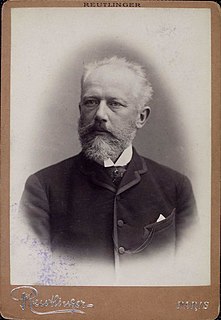A Quote by Salvatore Quasimodo
He passes from lyric to epic poetry in order to speak about the world and the torment in the world through man, rationally and emotionally. The poet then becomes a danger.
Related Quotes
What the world wants, what the world is waiting for, is not Modern Poetry or Classical Poetry or Neo-Classical Poetry - but Good Poetry. And the dreadful disreputable doubt, which stirs in my own skeptical mind, is doubt about whether it would really matter much what style a poet chose to write in, in any period, as long as he wrote Good poetry.
How can one express the indefinable sensations that one experiences while writing an instrumental composition that has no definite subject? It is a purely lyrical process. It is a musical confession of the soul, which unburdens itself through sounds just as a lyric poet expresses himself through poetry...As the poet Heine said, 'Where words leave off, music begins.'
Poetry is difficult, I mean interesting poetry, not confessional babble or emotive propaganda. Reading a new poet is discovering an entire world, what Stevens called a 'mundo' and it takes a lot of time to orientate oneself in such a world. What we have to learn to do then, as teachers and militants of a poetic insurgency, is to encourage people to learn to love the difficulty of poetry. I simply do not understand much of the poetry that I love.
I'm educating myself more about world poetry. I know a lot about contemporary American poetry, so I felt I needed to learn more about figures like Borges, Akhmatova, Neruda, etc. I felt I needed a bigger lens to see poetry through. It really helps to see poetry as a world language, and not just something American.
I don't know that I had a sense that there was such a thing as "the poetry world" in the 1960s and early 70s. Maybe poets did, but for me as an onlooker and reader of poetry, poetry felt like it was part of a larger literary world. I mean, even the phrase "the poetry world" reflects a sort of balkanization of American literary and artistic life that has to some extent happened since then.
To evade such temptations is the first duty of the poet. For as the ear is the antechamber to the soul, poetry can adulterate and destroy more surely then lust or gunpowder. The poet's, then, is the highest office of all. His words reach where others fall short. A silly song of Shakespeare's has done more for the poor and the wicked than all the preachers and philanthropists in the world.


































